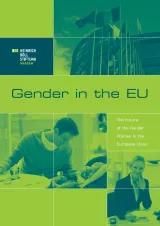Gender in the EU: The Future of the Gender Policies in the European Union
This publication of the Heinrich Böll Foundation’s Regional Office in Warsaw contains contributions made at the regional conference “Gender in the EU. The Future of the Gender Policies in the European Union,” which took place on 28 October, 2010 in Warsaw.
The beginning of the new term of the European Parliament (2009-2014) and the European Commission coincides with the fifth anniversary of EU membership of the countries from Central and Eastern Europe. During that period an entirely new internal dynamic has appeared within the European Union, influenced by conservative trends and backlash, together with growing euroskepticism. Some commentators have even indicated that there is a European identity crisis which is developing in old and new EU member states. The state of developments in the field of gender equality and gender policies at the EU level is, similarly, regarded as unsatisfactory. After the so-called “Golden Age” of the 1990s, when most gender equality initiatives – such as directives on equal treatment of women and men and community framework for gender equality – were adopted, there has been a kind of stagnation. The European Commission, under the leadership of Jose Manuel Barroso, preferred not to change the status quo and not to propose a new more progressive strategy. Until 2009 the EC was not able to present the draft of a new comprehensive antidiscriminatory directive. It was finally announced only under strong pressure from the European Parliament and NGOs from the EU member states. The Women’s Rights and Gender Equality Committee in the European Parliament, led by a conservative Anna Zaborska, was also unwilling to take more progressive steps. Despite initial declarations, the European Institute for Gender Equality, which was supposed to be set up in 2007 to support the EU institutions and EU member states in promoting gender equality and combating sex discrimination, has not begun its activities yet.
